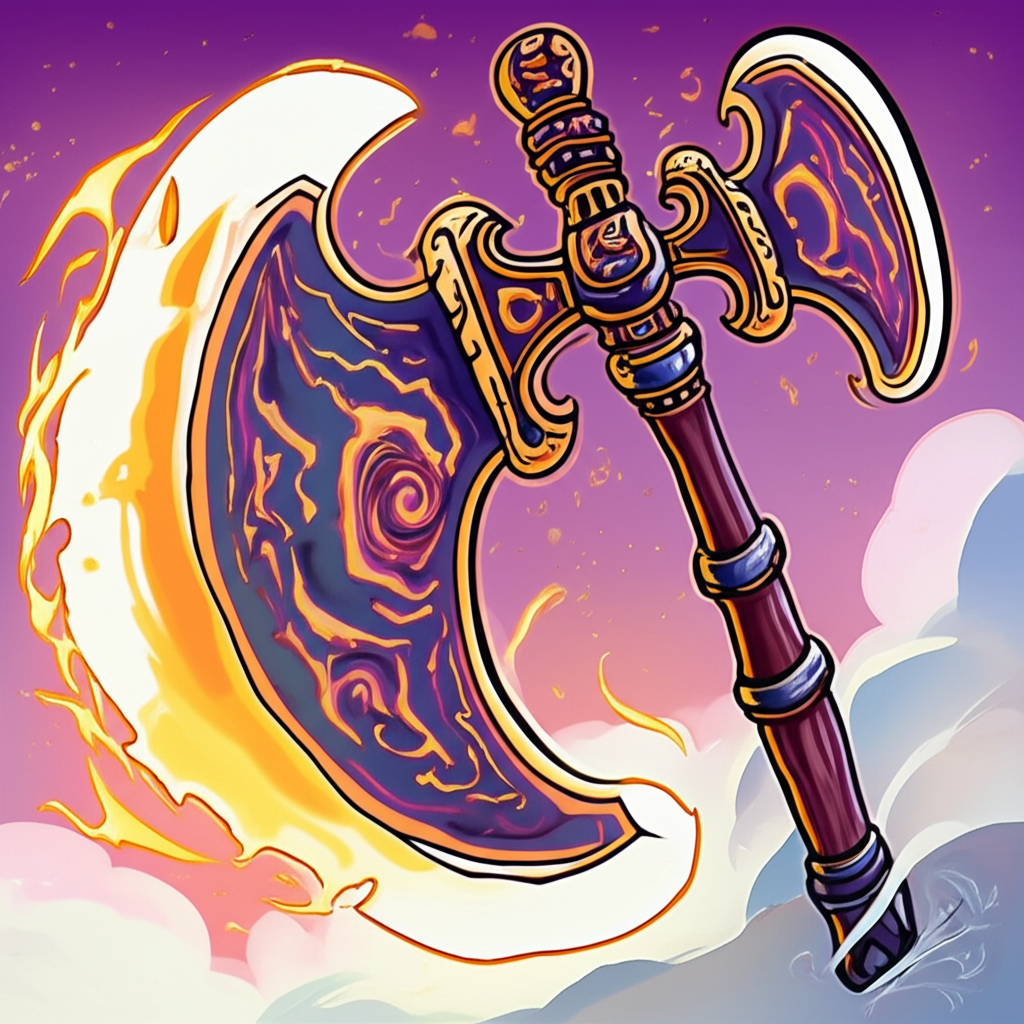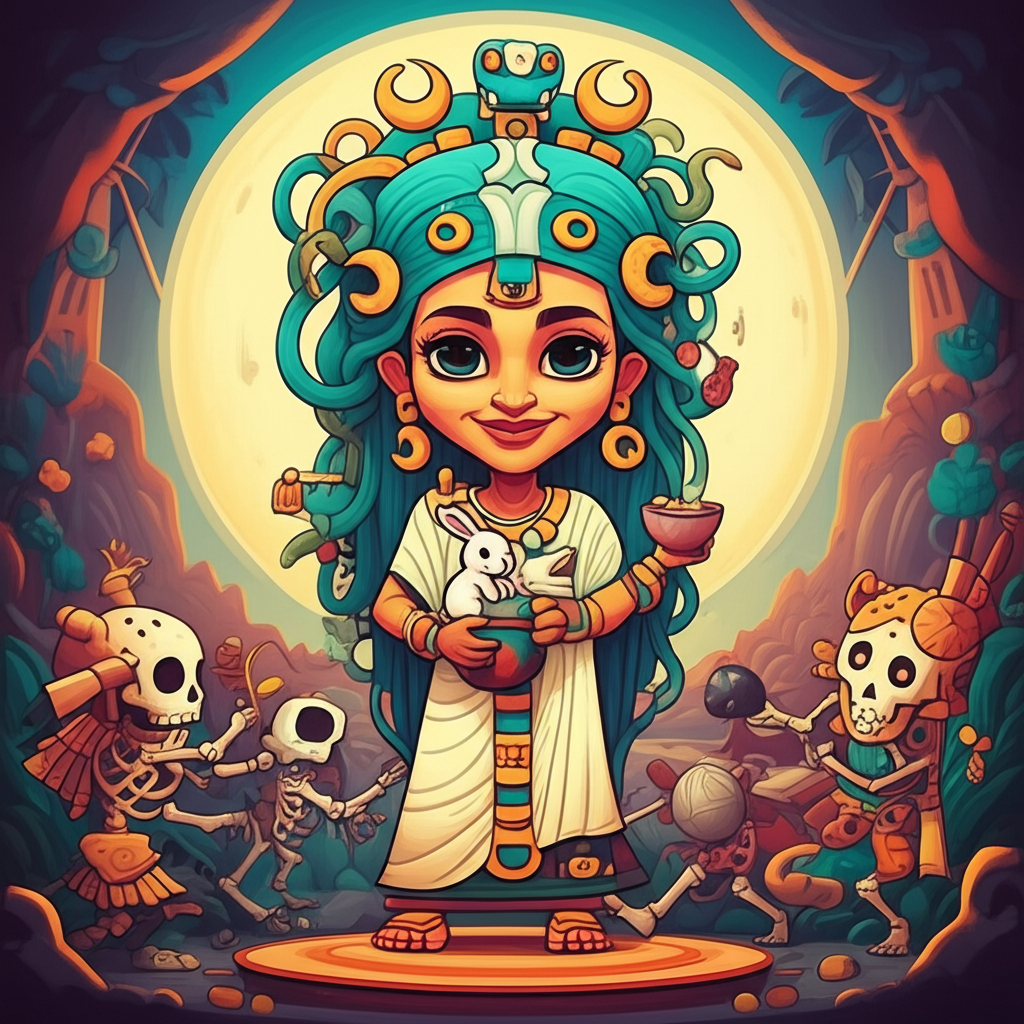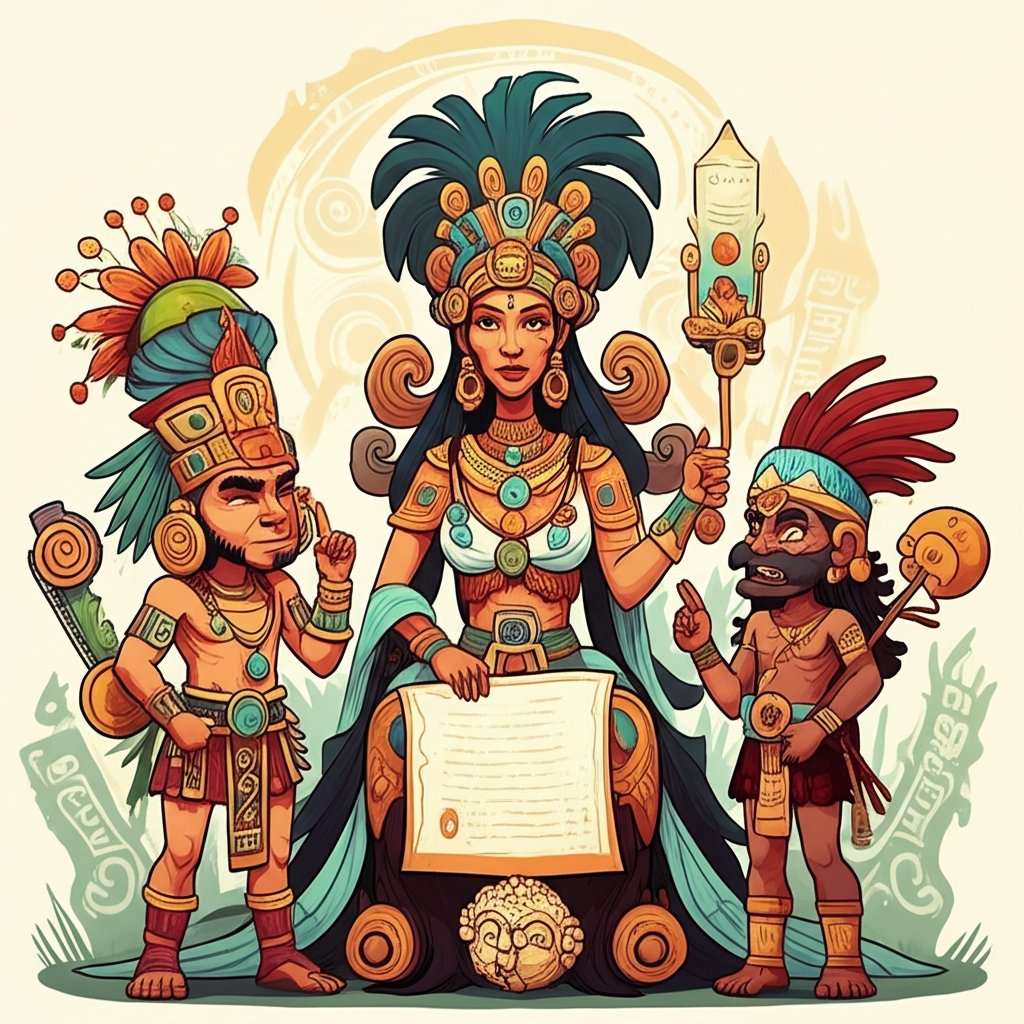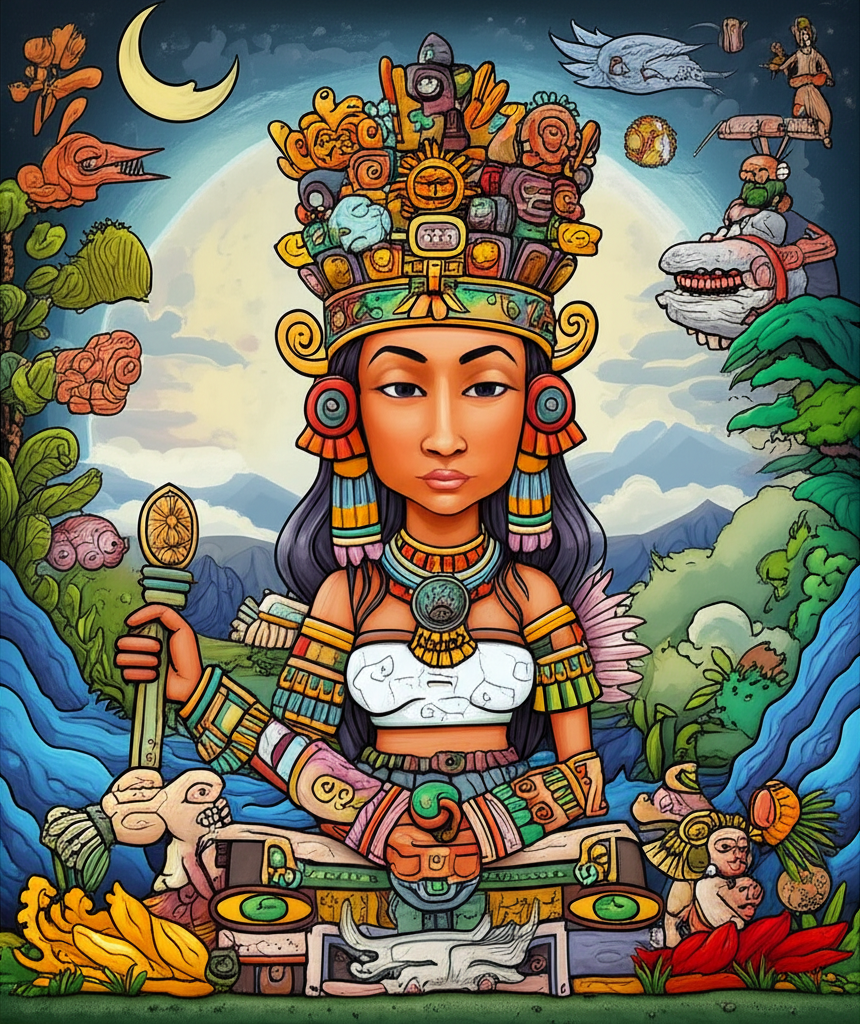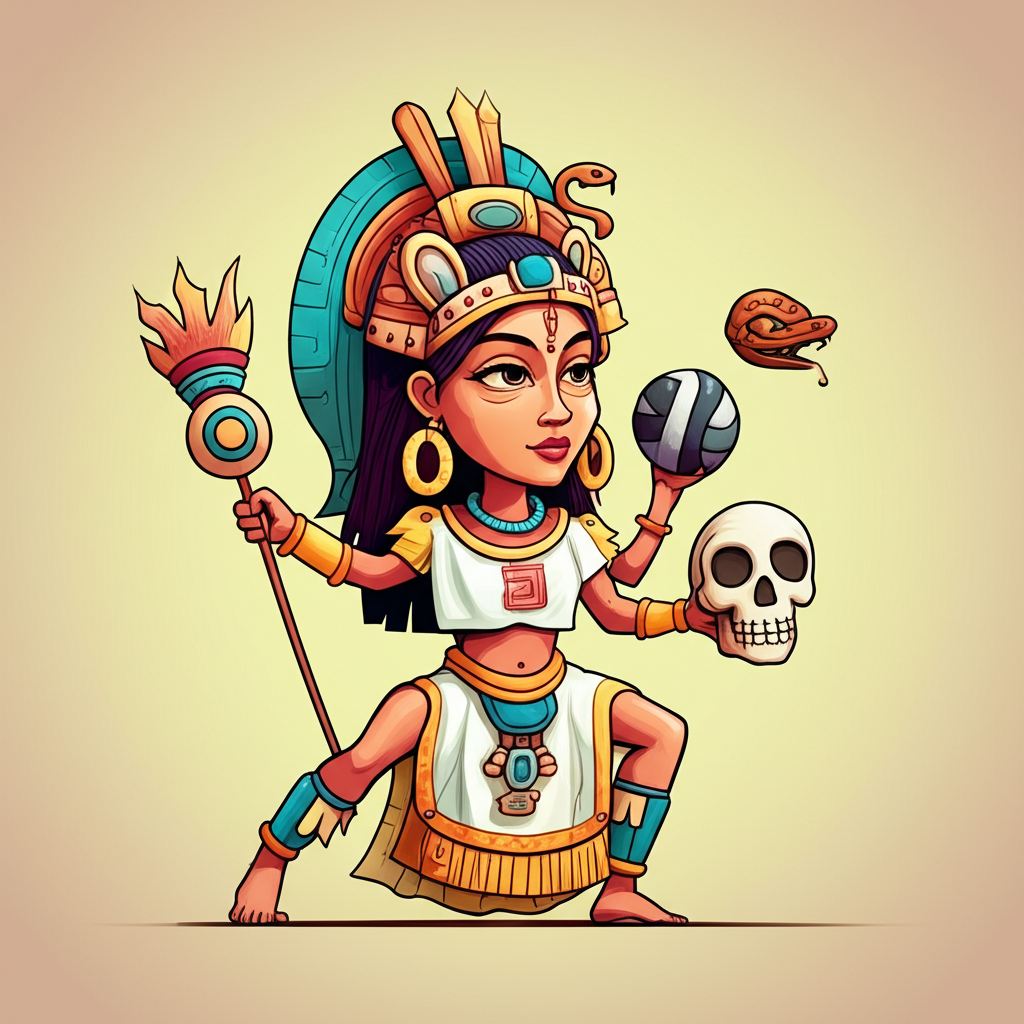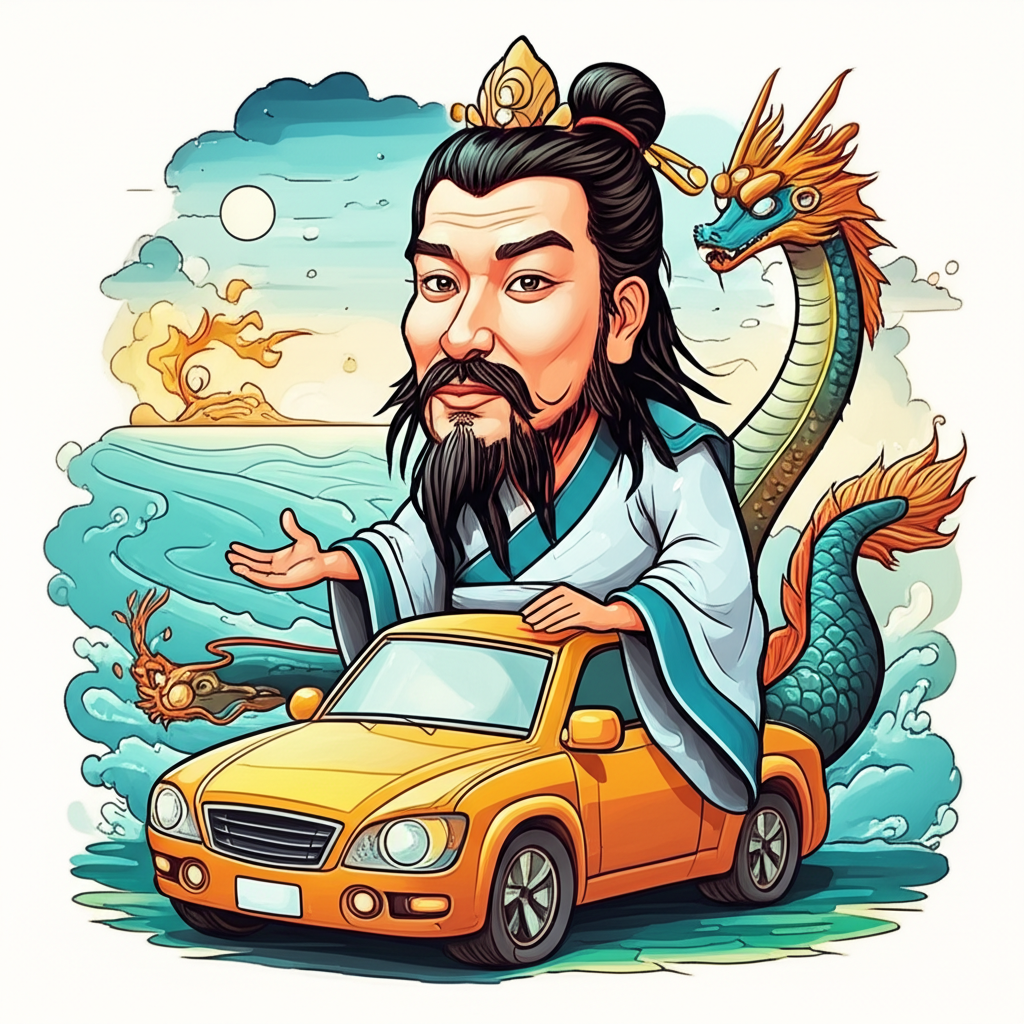
Introduction
The tale of Fuxi and the Eternal Sea originates from the rich tapestry of ancient Chinese mythology. Passed down through generations, initially through oral tradition and later documented in classical texts, this story offers a glimpse into the worldview of early Chinese civilizations. It’s crucial to understand that this narrative is a traditional story, a product of the human imagination, crafted by ancient people to explain the world around them and impart cultural values. It is a story, not a historical or religious truth.
Origins and Cultural Background
The myth of Fuxi likely arose during the Neolithic period in China, a time of significant social and technological change. This era, spanning roughly from 10,000 BCE to 2,000 BCE, witnessed the development of agriculture, the rise of settled communities, and the emergence of early forms of social organization. The people of this time lived intimately with nature, their lives deeply intertwined with the rhythms of the seasons and the forces of the natural world. They faced challenges such as unpredictable weather, floods, and the constant struggle for survival.
In this context, myths served as a means of explaining the unknown and providing a framework for understanding their place in the cosmos. The ancient Chinese perceived the world as a complex and interconnected system, where the actions of humans could influence the natural order, and vice versa. They believed in a multitude of spirits and deities who governed various aspects of life and the natural world. Myths like the one of Fuxi were not just entertainment; they were integral to their worldview, providing moral guidance, explaining natural phenomena, and reinforcing social structures.
Character Description: Fuxi
Fuxi is depicted as a pivotal figure in Chinese mythology, often portrayed as a sage king and cultural hero. He is typically represented as having a human body but sometimes with the tail of a serpent or dragon, symbolizing his connection to both the earthly and the divine realms. He is credited with numerous inventions and cultural innovations, including the creation of writing, the domestication of animals, the invention of fishing nets, and the establishment of marriage.
Symbolically, Fuxi represents order, civilization, and the taming of the chaotic forces of nature. His serpent or dragon tail can be interpreted as representing the untamed, primordial energy of the world, which he channels and transforms into constructive forces. The inventions attributed to him symbolize humanity’s increasing control over its environment and the development of social structures that allowed for cooperation and progress. He is a figure of wisdom, innovation, and the establishment of societal norms.
Main Story / Narrative Retelling: The Chronicle of Fuxi and the Eternal Sea
In the dawn of time, before the earth was properly shaped and the heavens were fully established, there existed only chaos – a swirling mass of primordial energy. A great flood threatened to engulf the nascent world, the waters of the Eternal Sea rising relentlessly, consuming everything in their path. Humanity was young, scattered, and ill-equipped to face such a cataclysm.
From this chaos emerged Fuxi, a being touched by both the mortal and the divine. He observed the plight of humanity, the despair in their eyes as the waters crept higher. He knew he had to act.
Fuxi, guided by intuition and a deep understanding of the natural world, began to observe the patterns in the chaos. He noticed the movement of the stars, the flow of the rivers, and the cycles of the moon. From these observations, he derived the Bagua – the eight trigrams – a system of symbols representing the fundamental principles of the universe. These trigrams became the basis for his understanding of the world and the tool he would use to save it.
The Eternal Sea, a vast and turbulent body of water, was controlled by the Dragon King, a powerful and unpredictable deity. The Dragon King, in his capricious mood, had unleashed the flood, threatening to drown all of creation.
Fuxi journeyed to the depths of the sea, a perilous voyage filled with monstrous creatures and treacherous currents. He sought an audience with the Dragon King. He presented the Bagua, explaining to the Dragon King the importance of balance and harmony in the universe. He showed him how the unrestrained power of the sea could lead to destruction and ultimately to the downfall of the Dragon King himself.
Impressed by Fuxi’s wisdom and the power of the Bagua, the Dragon King relented. He agreed to control the waters of the Eternal Sea, to keep them within their bounds. Fuxi, using his knowledge of the land and the Bagua as a guide, then worked tirelessly to channel the floodwaters, diverting them into rivers and lakes, and reclaiming the land for humanity.
He taught the people how to build shelters on higher ground, how to cultivate the land, and how to fish in the newly formed waters. He showed them how to use nets to catch fish, how to domesticate animals for food and labor, and how to write, so they could record their history and pass on their knowledge to future generations. He also established the institution of marriage, bringing order and stability to their social lives.
Fuxi, having saved humanity from the flood and laid the foundation for civilization, ascended to the heavens, leaving behind a legacy of wisdom, innovation, and compassion. The world was no longer a chaotic, flood-ravaged landscape but a place of order, harmony, and potential.
Symbolism and Meaning
The myth of Fuxi and the Eternal Sea is rich in symbolism. The flood represents the chaotic forces of nature, the constant threat to human existence. Fuxi embodies the human capacity for reason, innovation, and leadership. His creation of the Bagua symbolizes the human desire to understand the underlying principles of the universe and to use that understanding to control their environment. The Dragon King represents the untamed power of nature, which can be both destructive and beneficial. The story, therefore, can be interpreted as a narrative about humanity’s struggle to survive in a hostile world, the importance of knowledge and innovation, and the need for balance and harmony between humanity and nature. It likely served as a way for ancient Chinese societies to understand and cope with the challenges they faced and to reinforce the importance of social order and cooperation.
Modern Perspective
The myth of Fuxi continues to resonate in modern culture. He appears in numerous works of literature, film, and video games, often portrayed as a wise and benevolent leader. His story is used to explore themes of creation, innovation, and the relationship between humanity and nature. In cultural studies, the myth of Fuxi is often analyzed as a reflection of ancient Chinese values and beliefs. His association with the Bagua and the I Ching (Book of Changes) has also made him a figure of interest to those studying divination and Eastern philosophy. The story serves as a reminder of the enduring power of myth to shape our understanding of the world and ourselves.
Conclusion
The Chronicle of Fuxi and the Eternal Sea is a captivating example of the rich and imaginative storytelling tradition of ancient China. It offers a window into the worldview of a people who lived in close proximity to nature and sought to understand their place in the cosmos. It is a story, not a statement of belief.
As Muslims, we recognize that only Allah is the true Creator and Sustainer of the universe. We understand that these myths are cultural artifacts, products of the human imagination, and not divine truths. However, we can still appreciate the cultural heritage and the creative spirit that gave rise to these stories. They remind us of the power of storytelling to convey values, explore universal themes, and connect us to the past. This tale of Fuxi serves as a testament to the enduring human capacity for imagination and the enduring relevance of cultural traditions.
